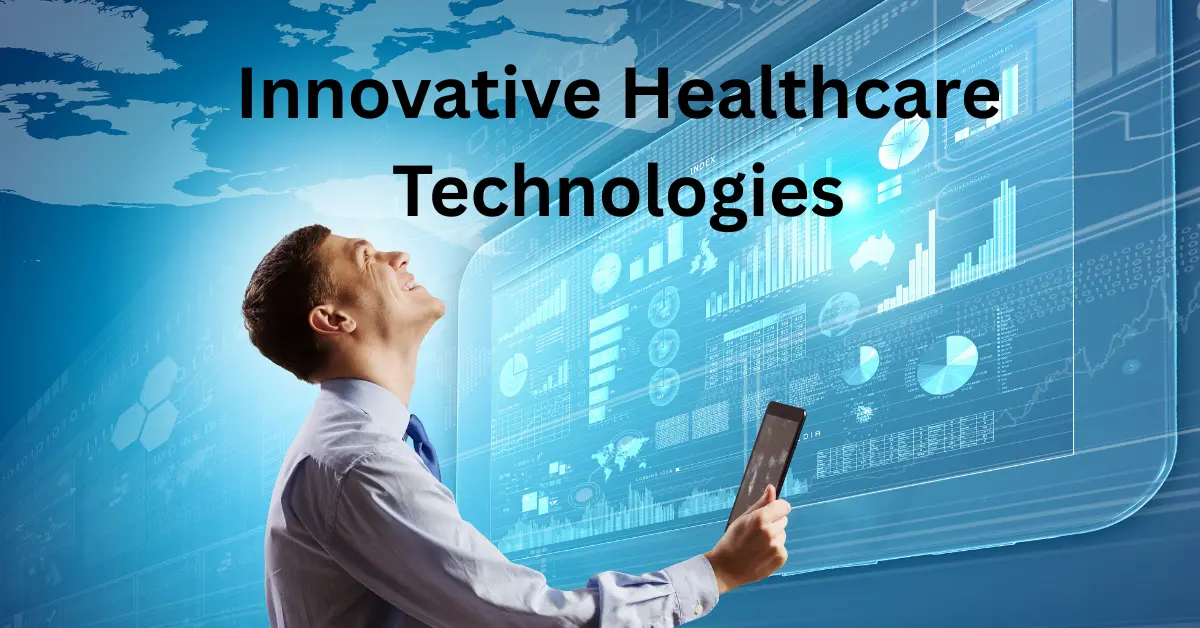From wearable health monitors to AI-powered diagnostics, the world of healthcare is undergoing a monumental shift. With every passing year, the integration of technology into medical science becomes more seamless, more intelligent, and more impactful. We’re not just talking about tools anymore; we’re talking about lifesaving, future-defining innovations that are reshaping how we experience medicine. Whether you’re a healthcare professional, a tech enthusiast, or someone who simply cares about the future of health, understanding these shifts is essential. In this article, we’re diving deep into the landscape of Medical Technology Advancements and how they’re transforming lives.
The Evolution of Medical Technology

From Ancient Practices to Digital Health
- Early medicine relied heavily on herbs, natural remedies, and trial-and-error methods
- The introduction of surgical instruments in ancient Greece and Rome marked the beginning of structured medical procedures
- In the 19th and 20th centuries, discoveries like X-rays and antibiotics revolutionized medical care
- The digital revolution of the 21st century gave rise to telemedicine, robotic surgeries, and personalized healthcare
- The emergence of smartphones and mobile health apps allowed for personal health tracking and remote consultations
- Electronic medical databases began replacing paper records, increasing speed and accessibility
- Innovations in communication enabled faster emergency responses and better inter-hospital coordination
Key Milestones in Medical Innovation
- 1895: Discovery of X-rays by Wilhelm Roentgen
- 1928: Discovery of penicillin by Alexander Fleming
- 1953: Discovery of the DNA double helix structure
- 1978: Birth of the first test-tube baby
- 1980s: Introduction of MRI and CT scans for better diagnostics
- 2000s: Introduction of AI in diagnostics and imaging
- 2020s: Integration of machine learning and precision medicine in everyday clinical practice
- Development of mRNA vaccines to combat global pandemics
- Emergence of mobile health kits for at-home diagnostics and disease tracking
Latest Trends in Medical Technology Advancements
Artificial Intelligence in Healthcare
- AI is now capable of diagnosing diseases with higher accuracy than some physicians
- Machine learning algorithms analyze vast datasets from medical imaging to detect patterns invisible to the human eye
- Predictive analytics identify potential health issues before symptoms even arise
- Natural language processing (NLP) helps analyze physician notes and patient records for better care insights
- Chatbots and virtual assistants help with patient engagement, symptom checking, and mental health support
- AI is being used in drug discovery to predict the most effective compounds faster than traditional methods
- Robotics and AI together enable autonomous surgeries and patient monitoring in real time
Robotics and Automation
- Robotic-assisted surgeries, such as the da Vinci Surgical System, provide precision and minimal invasiveness
- Automation in pharmacies and diagnostic labs speeds up test results and reduces human error
- Robots assist in physical therapy by helping patients regain movement with smart sensors and feedback systems
- Autonomous disinfection robots ensure sterile hospital environments, reducing infection rates
- AI-driven surgical robots can adapt to the patient’s anatomy, improving outcomes
- Supply chain robots help manage inventory and delivery of medical supplies more efficiently
Wearable Health Devices
- Devices like smartwatches monitor heart rate, sleep cycles, oxygen levels, and stress metrics
- Continuous glucose monitors help diabetic patients manage their condition in real time
- Wearables with ECG and blood pressure capabilities provide early warnings and prompt interventions
- Smart patches monitor hydration levels, body temperature, and medication adherence
- Wearable defibrillators and biosensors are being used for chronic condition management
- Pregnancy and fertility trackers offer advanced insights into reproductive health
- Wearable EEG and EMG devices are helping monitor brain and muscle activity
Innovations in Diagnostics and Imaging
Advanced Imaging Technologies
- 3D imaging and holography provide more accurate visuals for complex surgeries
- AI-powered MRI and CT scans reduce diagnosis time and improve early detection
- Digital pathology enables remote diagnosis, reducing geographical health disparities
- Molecular imaging techniques reveal biological processes at the cellular and molecular levels
- Hybrid imaging systems (PET/CT, SPECT/CT) offer comprehensive diagnostic capabilities
- Portable imaging devices are now available for field use and emergency scenarios
- Real-time imaging during surgeries enhances precision and reduces recovery times
Liquid Biopsy
- A non-invasive method to detect cancer and other conditions through blood samples
- Detects genetic mutations, helping in early diagnosis and personalized treatment
- Useful in monitoring cancer recurrence and assessing treatment efficacy
- Ongoing research aims to expand liquid biopsy for neurological and cardiovascular conditions
- Liquid biopsy is being studied for prenatal testing and infectious disease detection
- Enables serial monitoring to track disease progression without repeated biopsies
Ready to stop wondering and start knowing? Let’s dive in.
Powerful Insights in Healthcare News Today
Health Industry Updates: Must-Know Trends and Developments
Breaking: Latest Health News That Impacts You Now
Discover Wellness Programs for Better Health Today
Telemedicine and Remote Patient Monitoring
Rise of Virtual Care
- Patients consult with doctors via video calls, saving time and reducing exposure to contagious illnesses
- Ideal for routine check-ups, chronic condition monitoring, and mental health support
- Reduces the burden on healthcare facilities and improves access in rural or underserved areas
- Integration with EHR systems allows seamless updates to patient records
- Virtual urgent care centers are emerging for 24/7 access to care
Remote Monitoring Tools
- Devices collect real-time data from patients at home, feeding directly into physician dashboards
- Healthcare providers track conditions like hypertension, COPD, diabetes, and sleep apnea
- Enables proactive intervention before emergency hospitalization is needed
- Smart inhalers, digital thermometers, and blood pressure cuffs are part of this ecosystem
- Improves patient adherence and reduces healthcare costs through continuous engagement
- Data collected helps personalize treatment plans and assess therapy outcomes
Personalized Medicine and Genomics
Tailored Treatments
- DNA analysis allows for treatments specific to a patient’s genetic makeup
- Pharmacogenomics helps determine how individuals respond to drugs, optimizing treatment plans
- Reduces side effects and improves effectiveness, especially in oncology and rare genetic disorders
- Nutrigenomics studies how diet interacts with genes, enabling personalized nutrition plans
- Advances in microbiome research also contribute to custom treatment approaches
CRISPR and Gene Editing
- Technology that allows scientists to alter DNA sequences with high precision
- Holds promise for treating genetic disorders like sickle cell anemia, cystic fibrosis, and Huntington’s disease
- Ongoing trials explore its use in cancer, HIV, and even aging-related diseases
- Raises ethical debates around gene modification and designer babies
- Gene editing may pave the way for permanent cures rather than lifelong treatments
Regenerative Medicine

Stem Cell Therapy
- Used for treating injuries, degenerative diseases, and organ repair
- Encouraging results in spinal cord injuries, heart disease, macular degeneration, and Parkinson’s
- Umbilical cord stem cells and induced pluripotent stem cells are key research areas
- Stem cells are also used in orthopedic and dental tissue regeneration
- Clinical trials are expanding to explore uses in autoimmune and metabolic disorders
3D Bioprinting
- Printing tissues and organs layer by layer using bio-inks and patient-specific data
- Could reduce dependency on organ donors in the future
- Current focus areas include skin grafts, cartilage, heart valves, and liver tissues
- Combines bioengineering, robotics, and materials science for revolutionary applications
- Bioprinting of vascular tissues and neural scaffolds is also being explored
Data Integration and Health Information Systems
Electronic Health Records (EHR)
- Centralized access to patient history improves decision-making
- Reduces paperwork, duplication, and delays in treatment planning
- Facilitates interdepartmental coordination and continuity of care
- AI-enhanced EHRs provide clinical decision support and real-time alerts
- Mobile EHR platforms allow physicians to access records on the go
Blockchain in Healthcare
- Enhances security and transparency in handling patient data
- Facilitates better coordination among multiple healthcare providers
- Improves trust, data ownership, and reduces fraud in health insurance claims
- Enables secure clinical trials and research data sharing across institutions
- Smart contracts allow automated, tamper-proof medical billing and approvals
Mental Health Tech Advancements
Digital Therapy Platforms
- Apps provide Cognitive Behavioral Therapy (CBT) and mindfulness for anxiety, depression, and PTSD
- Users can access support anytime without stigma or waiting lists
- Gamified apps and virtual reality offer immersive therapy experiences
- Integration with wearable devices tracks mood patterns and triggers
- Personalized digital therapy pathways improve long-term outcomes
AI in Mental Health
- AI-driven platforms can detect emotional tone, facial expressions, and speech patterns
- Provide alerts to caregivers or professionals in case of distress or suicidal ideation
- Chatbots offer real-time support, mood journaling, and guided relaxation exercises
- Analysis of social media activity is being explored as a mental health indicator
- Virtual therapists use AI to simulate human interaction and cognitive behavior therapy
Future-Proofing Healthcare Systems
Smart Hospitals
- Integrated systems for patient monitoring, diagnostics, and medication management
- Use of IoT devices to streamline operations and reduce wait times
- Smart beds adjust automatically to patient needs and improve safety
- Predictive maintenance and energy-efficient designs improve hospital sustainability
- Real-time location systems track equipment and staff for better workflow
Pandemic Preparedness Tech
- Contact tracing apps and predictive modeling tools to prepare for future outbreaks
- Smart PPE, disinfecting robots, and UV sterilization systems enhance safety protocols
- Cloud-based crisis management platforms enable rapid resource deployment
- Real-time genomic surveillance tracks virus mutations and spread patterns
- Remote triage tools and automated testing kits aid during health emergencies
Challenges and Ethical Considerations
Data Privacy
- Balancing the benefits of data sharing with patient confidentiality
- Importance of robust cybersecurity measures and ethical AI frameworks
- Ensuring patient consent and transparency in data usage
- Addressing potential misuse or breaches of sensitive information
Cost and Accessibility
- High cost of new technology can widen the gap between wealthy and underserved populations
- Need for policy-level reforms to ensure equitable access
- Innovations in low-cost diagnostics and mobile clinics aim to address these gaps
- Public-private partnerships can help scale access to remote regions
Ethical Dilemmas
- Genetic editing and AI raise moral questions about the limits of technology
- Requires ongoing dialogue among scientists, ethicists, and policymakers
- Ensuring technology serves humanity without creating new forms of discrimination or bias
- Considerations about autonomy, consent, and long-term societal impact
Conclusion
As we stand on the edge of a medical revolution, the pace and promise of Medical Technology Advancements continue to grow. These breakthroughs are not only saving lives but redefining the very experience of healthcare. Whether it’s AI diagnosing cancer earlier, or stem cells healing damaged hearts, the fusion of technology and medicine is shaping a future where healthcare is smarter, more humane, and more effective than ever before.
FAQs
What is the most impactful recent medical technology?
Artificial Intelligence (AI) stands out as the most impactful recent medical technology. AI-driven diagnostics have revolutionized disease detection, enabling earlier and more accurate identification of conditions like cancer and cardiovascular diseases.
How are wearable devices changing healthcare?
Wearable health devices, such as smartwatches and biosensors, are transforming healthcare by providing real-time monitoring of vital signs like heart rate, oxygen levels, and glucose levels.
Is telemedicine as effective as in-person visits?
Telemedicine has proven to be highly effective for many routine and follow-up consultations. It offers convenience, reduces the burden on healthcare facilities, and improves access to care, especially in remote or underserved areas.
What role does robotics play in surgery today?
Robotics plays a significant role in modern surgery by enhancing precision and control during procedures. Robotic-assisted surgeries, like those using the da Vinci Surgical System, allow for minimally invasive operations, resulting in reduced recovery times and improved patient outcomes.
Are there any risks with advanced medical technologies?
Yes, while advanced medical technologies offer numerous benefits, they also pose risks such as data privacy concerns, unequal access to cutting-edge treatments, and ethical dilemmas surrounding AI and gene editing.






